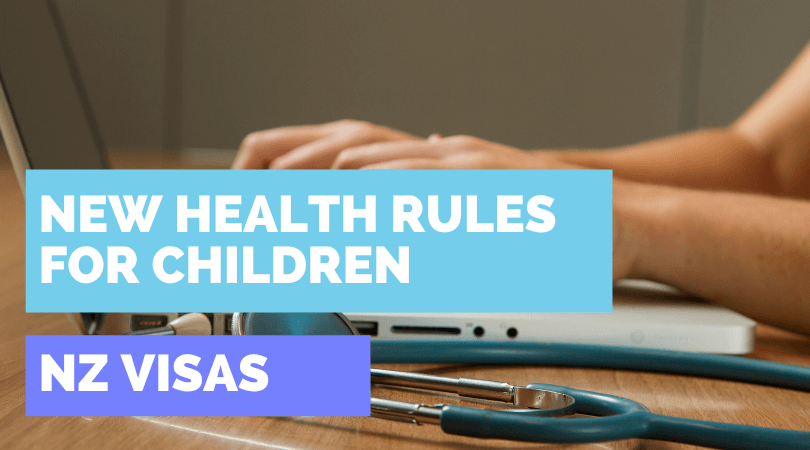New Zealand has recently updated its health screening requirements for dependent children of temporary visa holders, affecting those children applying for student or visitor visas.
 What has changed?
What has changed?
As of March 17, 2025, children under 21 who are dependents of work, student, or military visa holders must meet stricter health criteria. Specifically, children with severe cognitive or developmental disabilities requiring substantial support—such as significant intellectual disabilities, autism spectrum disorders, or brain injuries—are now deemed not to meet the acceptable standard of health.
Why this change?
This change aligns the health requirements for temporary visas with those already applied to residence-class visas, aiming to ensure consistency across New Zealand's immigration system. The rationale behind this policy adjustment is to manage the potential impact on New Zealand’s health and education systems. Children with high support needs may require services that could place significant demand on public resources. By implementing these changes, the government seeks to balance facilitating the entry of individuals who contribute to the country’s workforce, education, and community with the need to maintain the sustainability of public services.
Why this is important
For families considering relocating to New Zealand, it is crucial to complete immigration medical assessments early in the visa application process. This proactive approach helps identify any health-related issues that might affect visa eligibility before making significant life changes. Waiting until after arrival to undergo medical evaluations can lead to unexpected challenges, including potential visa refusals. Discussing your potential concerns with an immigration adviser early in the process is always a good idea, rather than finding out later on after you have made irreversible decisions, such as selling property, resigning or even travelling here on a shorter-term visa already.
Medical waivers
One positive change is that in certain exceptional cases, a medical waiver may be granted. Until then, medical waivers were only granted for residency applications or for partners/dependent children of New Zealanders. A waiver may typically be granted when one parent holds a highly skilled or senior position, or possesses unique expertise urgently needed in New Zealand. Such waivers are considered on a case-by-case basis and are not guaranteed.
Given the emotional and logistical complexities involved, seeking professional immigration advice is strongly recommended before making decisions related to employment or study opportunities in New Zealand. Expert guidance can help navigate the updated health screening requirements and ensure a smoother immigration process for families.

